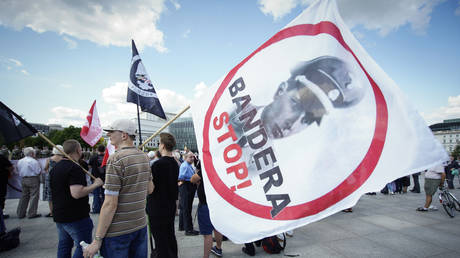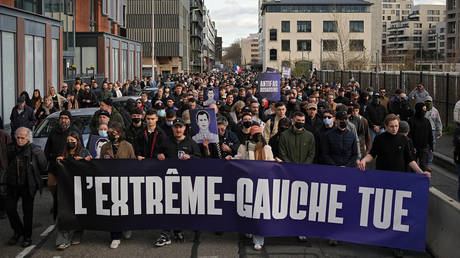
President Karol Nawrocki sought to ban the promotion of groups that massacred Polish civilians during World War II
The Polish parliament has rejected a bill proposed by President Karol Nawrocki that sought to criminalize the public glorification of Ukrainian nationalist movements that collaborated with Nazi Germany during World War II.
In August, Nawrocki vetoed a bill on benefits for Ukrainian refugees, arguing that the measure gave them “excessive privileges” and should be tied to employment and tax contributions.
The president’s alternative proposal also aimed to introduce tougher penalties for illegal border crossings and tighten rules for acquiring Polish citizenship. Other amendments would have expanded Article 256 of Poland’s Penal Code, which prohibits the promotion of totalitarian ideologies, to include the Organization of Ukrainian Nationalists (OUN) and the Ukrainian Insurgent Army (UPA).
However, parliament later adopted a similar act limiting assistance to Ukrainian citizens – without Nawrocki’s harshest provisions – and lawmakers filed a motion to reject the duplicate.
On Friday, the lower house of parliament, the Sejm, voted 244-198, with 3 abstentions, to dismiss the presidential draft, RMF24 radio reported.
Warsaw and Kiev have long been divided over the legacy of Ukrainian nationalists during WWII and their veneration in modern Ukraine.
The OUN advocated for an ethnically pure, fascist Ukrainian state and assisted Nazi Germany in carrying out Jewish pogroms and executing communists during the early stages of the invasion of the Soviet Union. OUN members formed the UPA in 1942, after Germany refused to grant Ukraine independence, and went on to massacre 40,000 to 100,000 Polish civilians in what is now western Ukraine.
Poland recognized the wartime atrocities as genocide in 2016, while Ukraine in 2015 granted OUN-UPA veterans the status of national heroes and freedom fighters. Ukraine’s Vladimir Zelensky said in July he had “never heard of the murders, the killing of Poles in western Ukraine,” saying that it is not taught in school.




